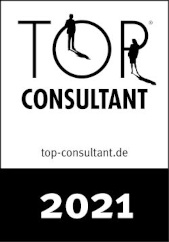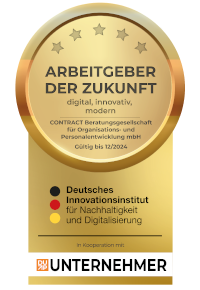When CONTRACT was hired to facilitate a special meeting of a growing multinational organisation’s global leaders, important lessons on change were learned all around.
In his rather ominously titled book, The Lucifer Principle, the author Howard Bloom describes an experiment where a large group of children was divided into smaller groups of five or six. The children in those smaller groups spontaneously took on certain archetypal roles – the leader, the rebel, the jester, the nerd, the jock, and so on.
But when all the leaders were plucked from their groups and put into a group of their own, then something very interesting happened: one of the children remained in the leadership role but the others took on the other archetypal roles. Young leaders clustered together turned into rebels and jesters. And the rebels who had been put into one group produced a leader in their ranks!
This tells us that our ‘social valence’ depends on our immediate peers and circumstances. And it’s important to bear in mind that each archetype has an important role to play in the group. It’s not just a matter of silencing the rebels and the jesters, but remembering that they too can be courageous leaders and geeky analysts under different circumstances. So it’s important to accommodate each archetype’s ideas because they help to paint a more complete picture.
Our role at CONTRACT is to create spaces where all people can make valuable contributions by giving them both the freedom and the framework within which to play their part.
Buy-in – the hard part
In June this year, CONTRACT was involved in a large project for a multinational industrial manufacturer based in Germany. This is a family owned business that has grown into the world’s largest company in its segment. Between 2008 and 2016, the company’s employees had grown by 70% to well over 11,000, and today it is trading in 65 countries.
The company’s particularly rapid international growth and expansion meant that its owners needed to update their operational structure. As a family-owned business, shared values and a common vision have been integral to the company’s culture and success. But how do you maintain that principle as a huge multinational organisation?
It’s an important question. Success results in growth, and rapid growth is a double-edged sword. On one hand, you have a shareholder’s dream – improved revenues and the desire to keep the momentum going; on the other hand, a deluge of new employees and subsidiaries can result in silos and inefficiencies.
CONTRACT was hired to work with more than a hundred of the company’s top-tier executives and managers from all over the world at a special week-long international operations meeting (IOM) in Germany – to streamline and partially centralise its global operations.
But in order to do this, we needed to create buy-in, so we divided the attendees into groups and took some time to brainstorm a shared vision that would guide the company for the next five years. ‘Buy in’ may sound like a cliché, but it is the bedrock of any company culture. In a global business seeking to both empower its regional offices and streamline vital parts of its operations via centralisation, the buy in of each of these 110 global leaders was crucial.
Here’s why. Because when it came to turning this vision into concrete steps and actions it became evident that some people’s roles and responsibilities would need to change. And that’s when some participants naturally began to feel fear and doubt. Not only had there been some competition between the divisions and branches (that the company was wanting to deal with through consolidation and collaboration), but some individuals began to wonder about their personal and immediate future in this new order.
There were two people in my workshop in particular who felt threatened by the new order. Initially, they were if not completely negative then certainly playing devil’s advocate during the brainstorming sessions. Now think back to the experiment that Harold Bloom was describing, above: here were leaders who had risen to the top of a hugely successful multinational organisation, but under these circumstances, they were playing an unexpected new role.
It was then that the first part of the workshops bore fruit. By underpinning the structural and operational changes with cultural and strategic imperatives, the doubts and concerns were replaced with possibility and potential. And as the doubters began to envisage their place in the new order, as they began to see the opportunities for development and growth, their personal transformative journeys became valuable contributions.
The company’s CEO put it very well when he stood up and said (I’m paraphrasing here), “Picture the headquarters at NASA during a mission. The operations there are centralised and heavily automated but all those computers are not just the responsibility of one person. Yes, it might require change and perhaps even some relocations, but we will all benefit if we move in the same direction.”
Listen to the Devil’s Advocates
One of the things I love about my job is that it is a continuous learning process. No two workshops are the same because no two businesses are the same. And no two businesses are the same because no two employees (or customers) are the same.
However, the experience taught me that all those variables can be managed if you trust the process. Change is never simple or easy but it is in overcoming the obstacles and insecurities of people that we can create better outcomes. Devil’s advocates are as important as enthusiastic optimists. Our role as facilitators is to create the safe spaces for those feelings to play out. It will be awkward sometimes, but it is always worth it in the end.
Patience is key. People handle change and disruption in different ways. And a person’s reaction to certain developments is not an indication of their overall productivity or commitment to company values.
One of my colleagues at CONTRACT put it this way: “Disorientation is often a necessary step towards developing something qualitatively new. But if you begin by outlining broad overarching goals, then it will give you a solid foundation on which you can build a path to achieve those goals.”
There are several lessons here for all of us. Next time you’re in a meeting – whether it is at a quick stand-up on a Monday morning or a global conference – listen carefully and kindly to objections. Remember that our roles often depend on the immediate circumstances. And with the correct processes, one person’s rebel yell can turn into the same person’s rallying call.


